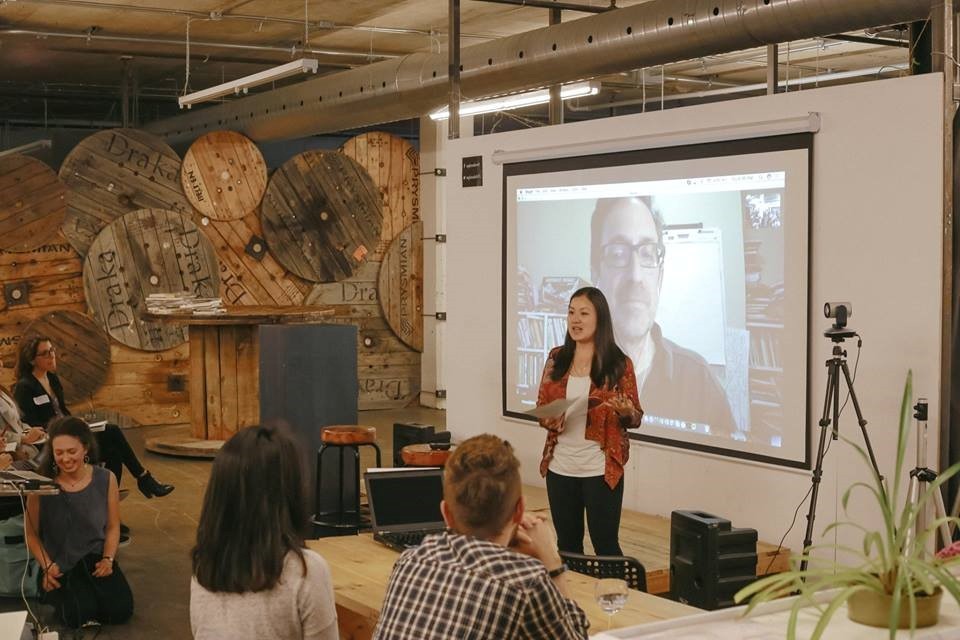
Cross-posted on the Samuel Center website.
The link between climate change and social inclusion may seem unlikely, but they are intricately related. The World Health Organization (WHO) has predicted that there will be approximately 250,000 additional deaths per year between 2030 and 2050 due to causes directly related to climate change, such as malnutrition, malaria, diarrhea and heat stress. Areas with poorer infrastructures and economies, such as in developing countries, are predicted to bear the burden of climate change more than developed nations, as they have less financial capital to invest into mitigation and adaptation activities.
Furthermore, national, regional, and municipal policies do not always reflect local realities. People living in different neighbourhoods within a city do not experience life the same way. This is where the UESI comes in. As Data-Driven Yale Director Dr. Angel Hsu noted, “data makes the invisible visible,” and tools like the UESI can spark and inform conversations about urban environmental performance and environmental justice. Participants had the opportunity to test the beta version of the UESI and explore the relationship between environmental performance and social inequalities in ten cities around the world, including Montreal.
Panel discussions framed and structured these dives into the UESI. Andy Revkin, Strategic Adviser for Science and Environmental Journalism at National Geographic, Bianca Mugyenyi, Co-Executive Director at The Leap, and Shelby Angalik, a student at Brock University and youth climate activist from Arviat, Nunavut, shared their work fostering and communicating inclusive climate action. Caroline Larivée, Scientific Program director and Team Leader for vulnerabilities, impacts and adaptation at Ouranos, and Matthew Chapman, Campaign Coordinator at Climate Reality Project Canada, discussed how to translate knowledge into action at the community and policy level.

Dr. Angel Hsu introduces the UESI project and speaker Andy Revkin, noting that “you measure what you treasure.” Photo by Malick Issa.
Towards the end of the launch event, participants shared their thoughts on the potential applications of the UESI (and other similar projects) to inform local awareness and action. For instance, one of the observations during the event was the inequalities between the East and West sides of cities. High-income neighborhoods tend to be located within the western sides of cities, where there is generally less air pollution. East ends of cities tend to house more low-income neighborhoods, which (on average) have higher concentrations of air pollution. For policymakers, city officials, businesses and citizens, it is important to be aware of the local inequalities that drive social exclusion, and to be able to tackle these issues that could be further exacerbated by climate change at the neighborhood level.
In addition to the findings below, the participants provided crucial feedback on the structure of the index. This feedback is currently allowing the Data-Driven Yale team to further improve, refine and develop their index, which in turn improve the UESI’s ability to support:
- Action and empowerment: The UESI can bring a more local perspective to the issue of environmental change and social inclusion. Local data empowers people to act locally in a way that larger-scale data cannot: everyday citizens can also use the Urban Environmental and Social Inclusion Index to take action in their neighborhoods to foster inclusive climate action. By providing very local and precise insight, issues are brought closer to home, which emphasizes the idea of “Think local, act global”.
- For policy change: Municipal governments, NGOs and advocacy groups can draw on the UESI to identify priority issues that would otherwise remain undiscovered. Local data can also bring attention to marginalized locals that are left out of larger-scale aggregated data and subsequently out of policies.
Follow The Samuel Center for Social Connectedness, Green MTL, and Data-Driven Yale to keep up to date about future events around inclusive climate action, and to learn more about actions you can take today to build inclusion and connectedness in your city.

Recent Comments